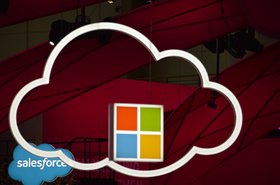Microsoft plans to acquire Activision Blizzard, the publisher of video game franchises including Call of Duty, World of Warcraft, Diablo, Overwatch, and Candy Crush.
While the $68.7 billion deal is more focused on bolstering Microsoft's Xbox Game Pass business, it will also likely impact its cloud division - as the company usually transitions acquisitions over to its own platform. When Microsoft acquired Minecraft developer Mojang Studios for $2.5 billion in 2014, it slowly began moving the company off of rival Amazon Web Services, in a transition that took until 2020 to complete.
Moving Activision Blizzard to Microsoft Azure is highly possible, given that it lowers costs, is an easy customer win, and removes a customer from its competitors.
Additionally, with the rise of cloud gaming, Xbox players will be playing Activision games on Xbox servers within Microsoft data centers anyway, so moving the surrounding infrastructure to the same facilities lowers latency.
Given that likelihood, what do we know about Activision's data center footprint?
Itself an amalgam of several businesses, each operating for decades, the IT infrastructure of Activision is somewhat sprawling, with different developers working with different providers to meet their needs.
The cultural phenomenon World of Warcraft spent years hosted out of ten AT&T data centers, which were sold to Evoque Data Center Solutions in 2019. In April 2020, some users noticed that IP addresses from Amazon Web Services were appearing in WoW lobbies, but a partnership has never officially been announced.
Other games equally had specific dedicated server locations at data centers, but it made it difficult for titles to scale during periods of sudden popularity - bringing games offline when people actually wanted to play them.
In 2020, the company announced it would move to the cloud. It chose Google Cloud as its preferred cloud provider, in a deal that saw the search giant also pay the games publisher $160 million over three years to exclusively stream its esports leagues and events on YouTube.
“We’re excited to partner with Google to drive the next generation of gaming innovation for the industry. Google Cloud's best-in-class infrastructure gives us the confidence to deliver great entertainment to our fans around the world," Jacques Erasmus, chief information officer at Activision Blizzard, said at the time.
That year, Activision said in an environmental report that it was consolidating its data centers in the US, presumably to shift those workloads to the cloud. For its existing colocation contracts, it said that it had begun collecting power usage effectiveness (PUE) and water usage effectiveness (WUE) metrics.
It is not clear how quickly Activision has shifted to the cloud - partnerships with providers are often announced years before meaningful work begins.
However, subsequent Google Cloud outages took down many of Activision's games, suggesting progress has been made. Google's public overview of its cloud game infrastructure highlights multiple Activision games - including Call of Duty, Overwatch, Dota 2, and World of Warcraft - as part of its sales pitch for other games developers.
King, developer of games like Candy Crush, has been a Google Cloud customer since 2018.
“We’ve worked closely with Activision Blizzard for the past few years across mobile titles to boost its analytics capabilities and overall player experience,” Sunil Rayan, head of gaming at Google Cloud, said in 2020.
“We are excited to now expand our relationship and help power one of the largest and most renowned game developers in the world.”
It is unlikely the 'multi-year' deal will be renewed after Microsoft's acquisition closes, which is expected to happen in fiscal year 2023.
The acquisition comes after months of sexual harassment claims against Activision Blizzard. The company was sued last July by the California Department of Fair Employment and Housing for promoting a culture of “constant sexual harassment,” and reached an $18m settlement with the US Equal Employment Opportunity Commission in September.




